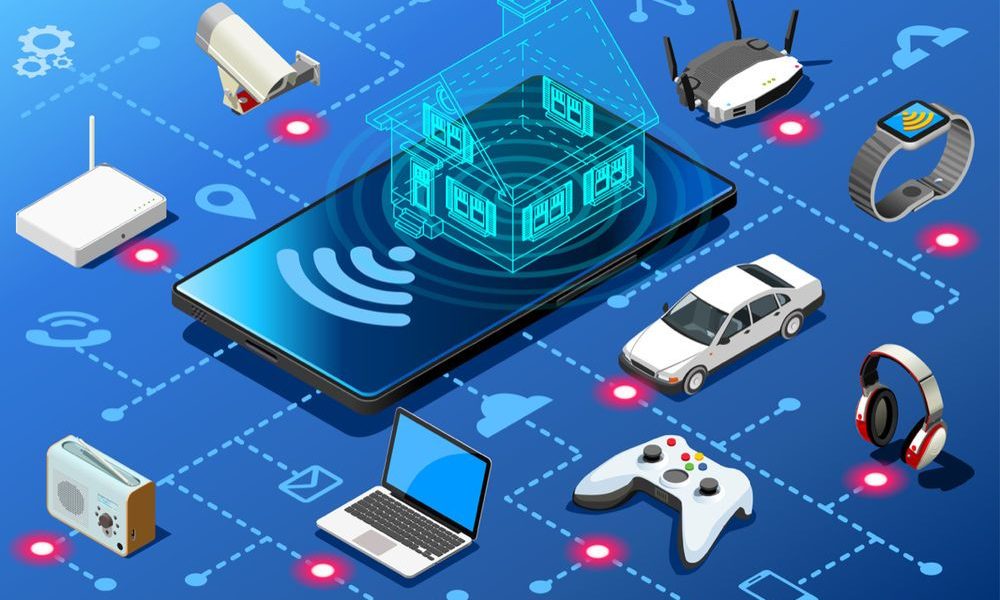The Internet of Things (IoT) has trasformed the way businesses operate, enabling seamless connectivity and data exchange between devices and systems. As the demand for IoT solutions continues to grow, organizations are faced with the task of selecting the right IoT platform to meet their specific needs. An IoT platform acts as the foundation for building, managing, and scaling IoT applications. In this blog, we will explore the five key features to look for in an IoT platform. These features will ensure that your organization can effectively harness the power of IoT and unlock its full potential.
Scalability and Flexibility
When selecting an IoT platform, scalability and flexibility are crucial considerations. Your chosen platform should have the ability to handle a growing number of devices, data streams, and connected applications. It should provide the flexibility to adapt to changing business requirements and support the integration of diverse devices and protocols. Look for an IoT platform that offers horizontal scalability, allowing you to easily scale your IoT deployments as your business expands.
Device Management and Connectivity
A robust IoT platform should offer comprehensive device management capabilities. It should support device onboarding, provisioning, monitoring, and control. The platform should also provide secure connectivity options, supporting various protocols such as MQTT, HTTP, and CoAP. Look for features like over-the-air (OTA) firmware updates, remote configuration, and real-time device diagnostics. Effective device management and connectivity are essential for seamless operation and control of your IoT ecosystem.
Data Management and Analytics
Data is at the heart of IoT applications. An ideal IoT platform should offer powerful data management and analytics capabilities. It should be capable of ingesting, storing, and processing massive amounts of data generated by connected devices. Look for features such as data filtering, transformation, and aggregation. The platform should also provide advanced analytics capabilities, including real-time analytics, predictive analytics, and machine learning. These features enable you to extract valuable insights from IoT data and make data-driven decisions.
Security and Privacy
Security is a critical aspect of IoT deployments. Your chosen IoT platform should prioritize security and privacy measures. Look for features such as end-to-end encryption, secure authentication, and access control. The platform should support secure communication between devices, gateways, and cloud services. Additionally, it should provide robust identity management and role-based access control to make sure that only authorized users and devices can access sensitive data and functionalities.
Integration and Interoperability
An effective IoT platform should seamlessly integrate with existing enterprise systems and other IoT solutions. Look for an IoT platform that offers open APIs, standard protocols, and interoperability with popular cloud platforms. This allows for easy integration with enterprise applications, data analytics tools, and third-party services. The platform should also support interoperability between different devices and technologies, enabling you to build a cohesive and connected IoT ecosystem.
Conclusion
Selecting the right IoT platform is crucial for the success of your IoT initiatives. By considering the five key features mentioned above, you can ensure that your chosen platform aligns with your business goals and enables you to harness the full potential of IoT. A scalable and flexible platform, comprehensive device management and connectivity, robust data management and analytics capabilities, strong security and privacy measures, and seamless integration and interoperability are all essential aspects to look for in an IoT platform.
FAQs (Frequently Asked Questions)
Q: What is an IoT platform?
A: An IoT platform is a software solution that serves as the foundation for building, managing, and scaling IoT applications. It provides the necessary infrastructure, tools, and services to connect, control, and analyze data from IoT devices. An IoT platform enables organizations to develop and deploy IoT applications effectively.
Q: Why is scalability important in an IoT platform?
A: Scalability is important in an IoT platform because it allows organizations to accommodate the growing number of devices, data streams, and connected applications in their IoT ecosystem. A scalable platform ensures that the infrastructure can handle increasing workloads and supports the expansion of IoT deployments as the business grows.
Q: How does an IoT platform enable data-driven decisions?
A: An IoT platform enables data-driven decisions by collecting, storing, and analyzing data from IoT devices. It provides advanced analytics capabilities, such as real-time analytics and predictive analytics, that allow organizations to gain valuable insights from the data generated by connected devices. These insights help in making informed and data-driven decisions for improved operational efficiency and business outcomes.
Q: What role does security play in an IoT platform?
A: Security is a crucial aspect of an IoT platform. It ensures the protection of sensitive data, prevents unauthorized access to devices and networks, and safeguards the integrity of the IoT ecosystem. A secure IoT platform incorporates encryption, authentication, access control, and secure communication protocols to mitigate the risks associated with IoT deployments.
Q: Can an IoT platform integrate with existing enterprise systems?
A: Yes, an IoT platform should have integration capabilities with existing enterprise systems. It should offer open APIs, support standard protocols, and provide interoperability with popular cloud platforms. This allows for seamless integration with enterprise applications, data analytics tools, and other third-party services.







